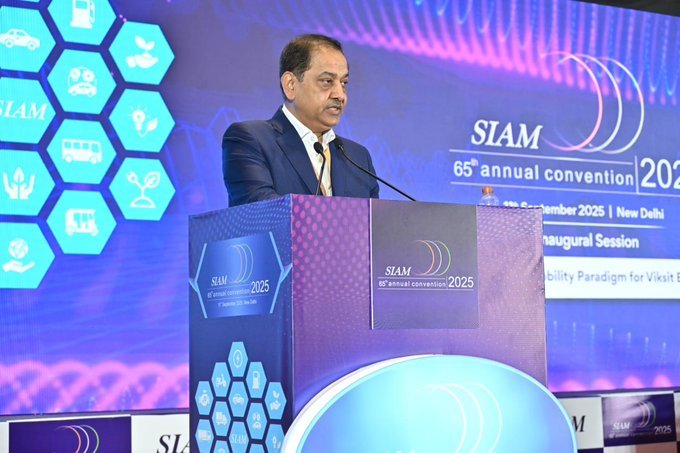News List
CV Industry Poised for Growth as GST Cut Spurs Truck Replacement: Ashok Leyland MD

India’s commercial vehicle (CV) sector may be the biggest winner from the government’s decision to slash GST on commercial vehicles from 28% to 18%, according to Ashok Leyland managing director Shenu Agarwal.
Agarwal said the move could act as the much-needed spark for replacing over 11 lakh ageing trucks and buses across the country, setting the stage for freight-led growth. With this momentum, the CV industry could even surpass its 2019 peak volumes by the end of this year.
“Many operators were holding back purchases. A nearly 10% cut in prices is exactly the kind of push the market needed,” Agarwal explained, adding that the biggest impact is expected in the medium and heavy-duty truck category.
Replacement Cycle Triggered
The average age of India’s truck fleet has risen to around 10 years, against the earlier benchmark of 7–8 years. While policies like BS6 emission norms and the scrappage scheme encouraged some upgrades, they failed to set off a significant replacement cycle. “This GST cut is the real trigger the industry was waiting for,” said Agarwal.
Wider Economic Impact
Beyond lowering vehicle prices, Agarwal stressed the broader economic benefits of the tax reform. “GST affects every business and household. If it boosts consumption, freight movement will naturally rise, and freight is the lifeline of CV demand,” he said.
Estimates suggest 11–12 lakh medium and heavy trucks are more than a decade old and ready to be replaced. Small fleet owners and retail buyers, who contribute nearly 60% of overall sales, are expected to drive this fresh wave of demand.
Relief Across Segments
The benefits of the tax cut are not confined to large trucks. Light commercial vehicles and small operators — many of whom have been under financial pressure — stand to gain as well. Banks are also viewing the change positively since lower vehicle costs reduce lending risks.
The bus segment, meanwhile, is already facing supply shortages due to rising orders from both state transport undertakings and private operators. To meet this demand, Ashok Leyland is ramping up its fully built bus production capacity to 1,650 units per month by April 2026.
Industry Still Cautious
Despite the optimism, Agarwal underlined the CV industry’s pragmatic nature. “Unlike passenger cars, our sector doesn’t move on emotions. Trucks cost ₹30–50 lakh, so purchase decisions are calculated and take time. By October–November, we’ll get a clearer picture,” he said.
Even with this caution, Agarwal remains upbeat. Strong freight activity in mining, highways, and infrastructure means the fundamentals remain solid. “If the momentum continues, 2025 could finally see volumes crossing the highs of 2019,” he added.
